This bedroom organization tip helps you fall asleep fast and reduces anxiety — here’s how
Experts share how a minimalist bedroom can improve your sleep and reduce stress
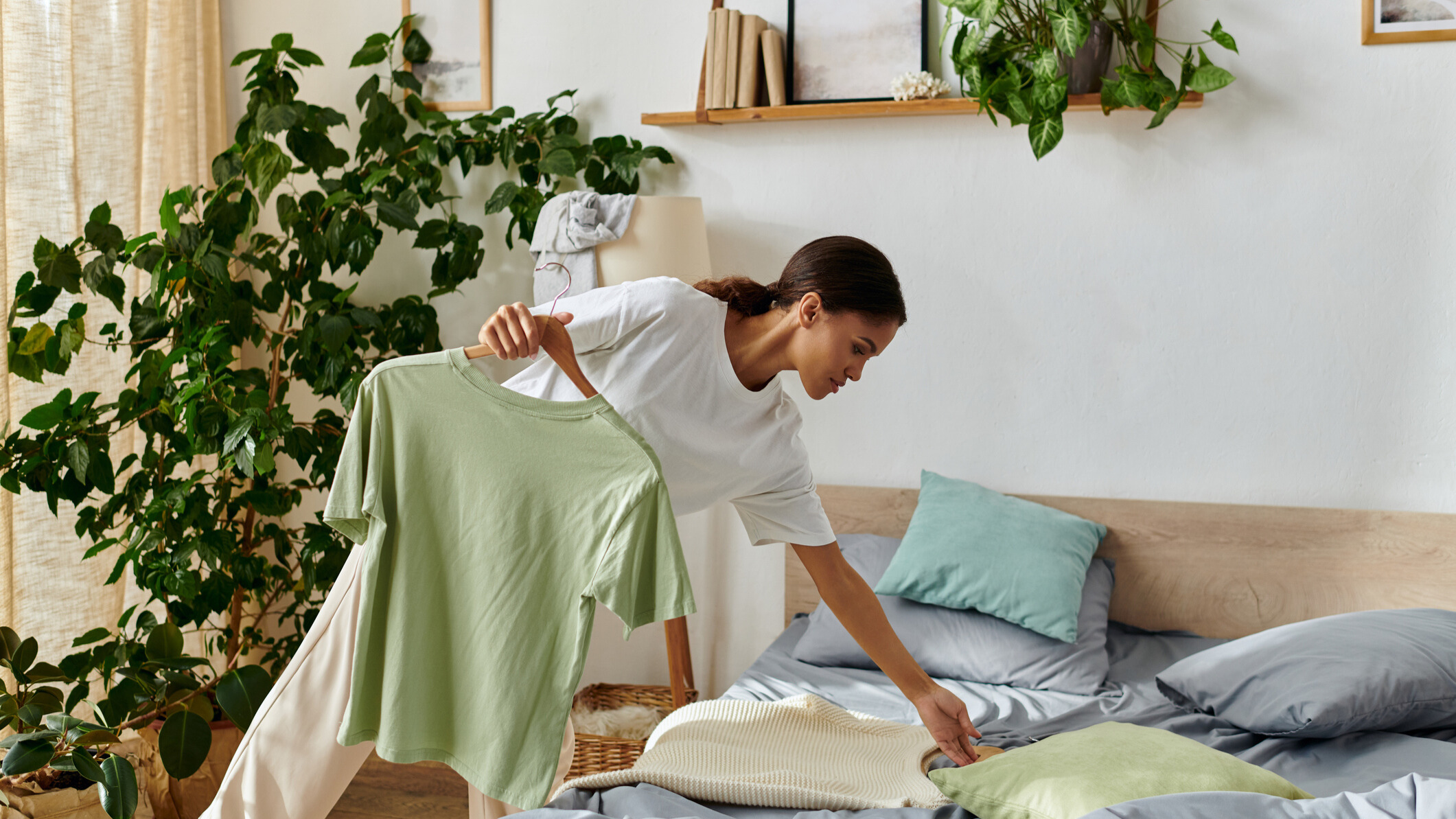
We all know that a clean and organized environment naturally puts us at ease, promoting relaxation. In the same way, there is enough research to show that your bedroom — where you spend up to one third of your life resting — has the power to make or break your sleep.
While we may naturally assume a poor night's sleep is down to stress, anxiety or even an underlying health condition, sometimes the answer (and the solution) is a lot more simple. A cluttered bedroom may be what's stopping you from getting quality sleep. While decluttering your bedroom may sound like a Herculean task to handle.
However, with tips, tricks and advice from experts like Dr Leah Kaylor, a clinical psychologist, Gala Magrina, principal interior designer and founder of New York-based Gala Magrina Design, and Barbara Brock, a professional organizer, you’ll be able to tackle it in no time.
After reading this article and creating a calm and comfortable environment, why not treat yourself to some fresh new bedding to recreate that hotel-luxury feel in the comfort of your own home? It's the right time to invest as this year's Presidents’ Day bedding sales are on the horizon. But first, let’s break down exactly how your bedroom impacts your sleep.
How does decluttering your bedroom help you fall asleep fast?
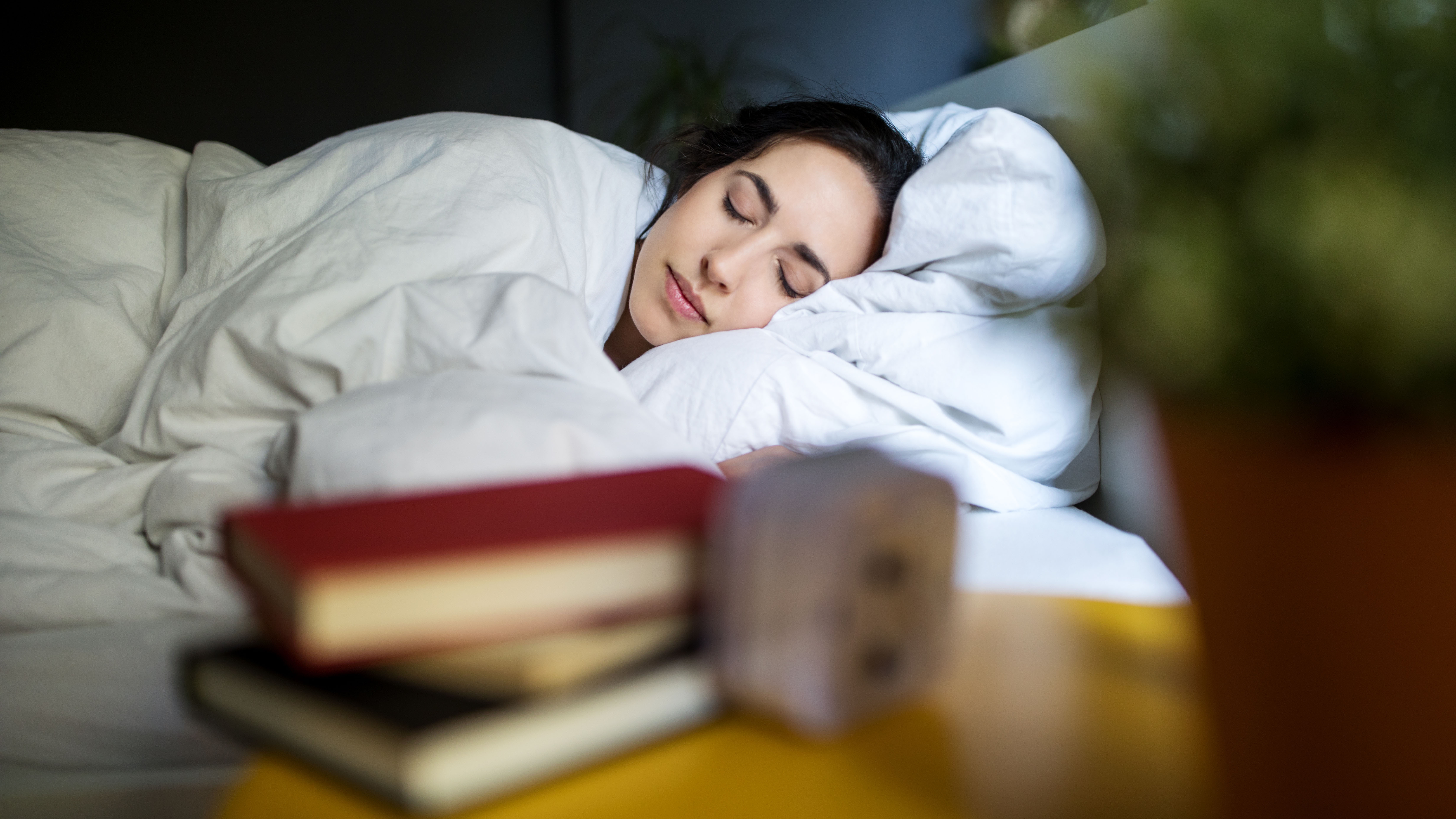
A cluttered bedroom can negatively impact sleep quality by increasing cognitive and sensory overload. When the brain perceives visual disorder, it remains in a state of alertness, which results in conditions like nighttime anxiety and stress.
“Visual clutter is directly linked to increased stress and anxiety. Clutter serves as a constant reminder of unfinished tasks making it hard for the brain to fully shut down at night,” explains Dr Kaylor.
In Feng Shui, for instance, clutter represents unresolved emotions, thoughts, beliefs and dynamics including personal and professional matters. “When it comes to clutter, the type, quantity, and location of the clutter factor into the impact on your sleep and the amount of worry, anxiety, and preservative thinking you have overall,” says Feng Shui expert and house therapist, Amy Babish.
- Read more: This TikToker reckons bedroom plants can improve your sleep quality, but do the experts agree?
5 ways to make your bedroom the perfect environment to fall asleep fast in
An ‘out of sight, out of mind’ logic won’t make the cut here. The idea is to not only tidy your bedroom, but organize it, too, following a minimalistic approach to make it a conducive environment for sleep. Here’s how:
Sign up to get the BEST of Tom's Guide direct to your inbox.
Get instant access to breaking news, the hottest reviews, great deals and helpful tips.
1. Declutter
Divide your bedroom into smaller areas and start from what you directly see in front of you while lying in bed. Pick up clothes or objects scattered on the floor as these can make your room look smaller than it is. Use the ‘Marie Kondo’ method, to better organise your closet by asking yourself questions like “Does this spark joy” or “Have I used this in the past year?”
No more than 3-5 items should live on a tabletop whether it's a side table, desk, console or bedside table. Any more than this will make it look crowded. “Dispose of anything that is broken or no longer usable, and donate items that still have life, but no longer serve you. This way you are getting a fresh start and also giving a fresh start to someone who is in need,” says Magrina.
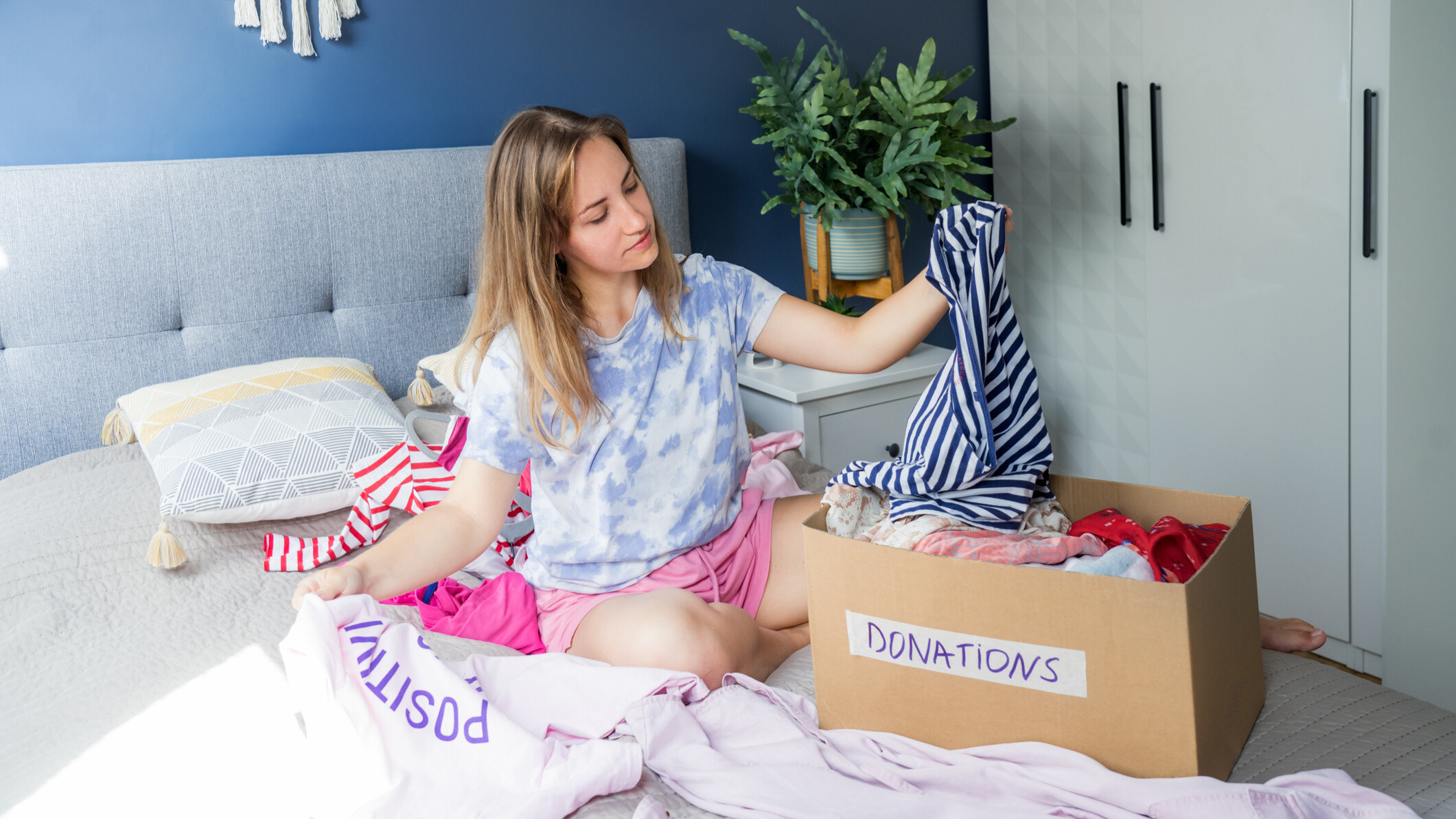
2. Remove tech
Technology and sleep do not go hand in hand. There are various studies which underline the adverse effects of screen-time on sleep quality. Try to keep your phones, laptops and tablets away from the bedroom as these can serve as a constant reminder of the outside world, preventing you from relaxing. The common habit of reaching for your phone in the middle of the night, has proved to be a major culprit behind many sleep struggles.
Magrina also strongly advises to avoid keeping your exercise equipment and desks in the bedroom. “Having something like a peloton bike or desk that reminds you of work brings in an entirely different energy that is not conducive to sleep and relaxation,” she says.
3. Make your bed
This very basic practice can instantly create a visually calming space perfect for sleeping. “An unmade bed immediately gives an impression of disorganization and chaos. Make your bed daily – it makes the whole bedroom look tidier,” says Brock.
The trick is to craft the ideal bed for your sleeping style and body type. Pair up your mattress with one of the best pillows for a cushioning yet supportive feeling throughout the night. Invest in quality mattress protectors, bed sheets and comforters as these will further help you to doze off faster.
Specialist bedding products like a weighted blanket can elevate your sleep experience with its proven benefits of alleviating stress, nighttime anxiety and even insomnia in adults. If you find yourself tossing and turning at night, investing in one of this year's best mattresses for your needs will help.
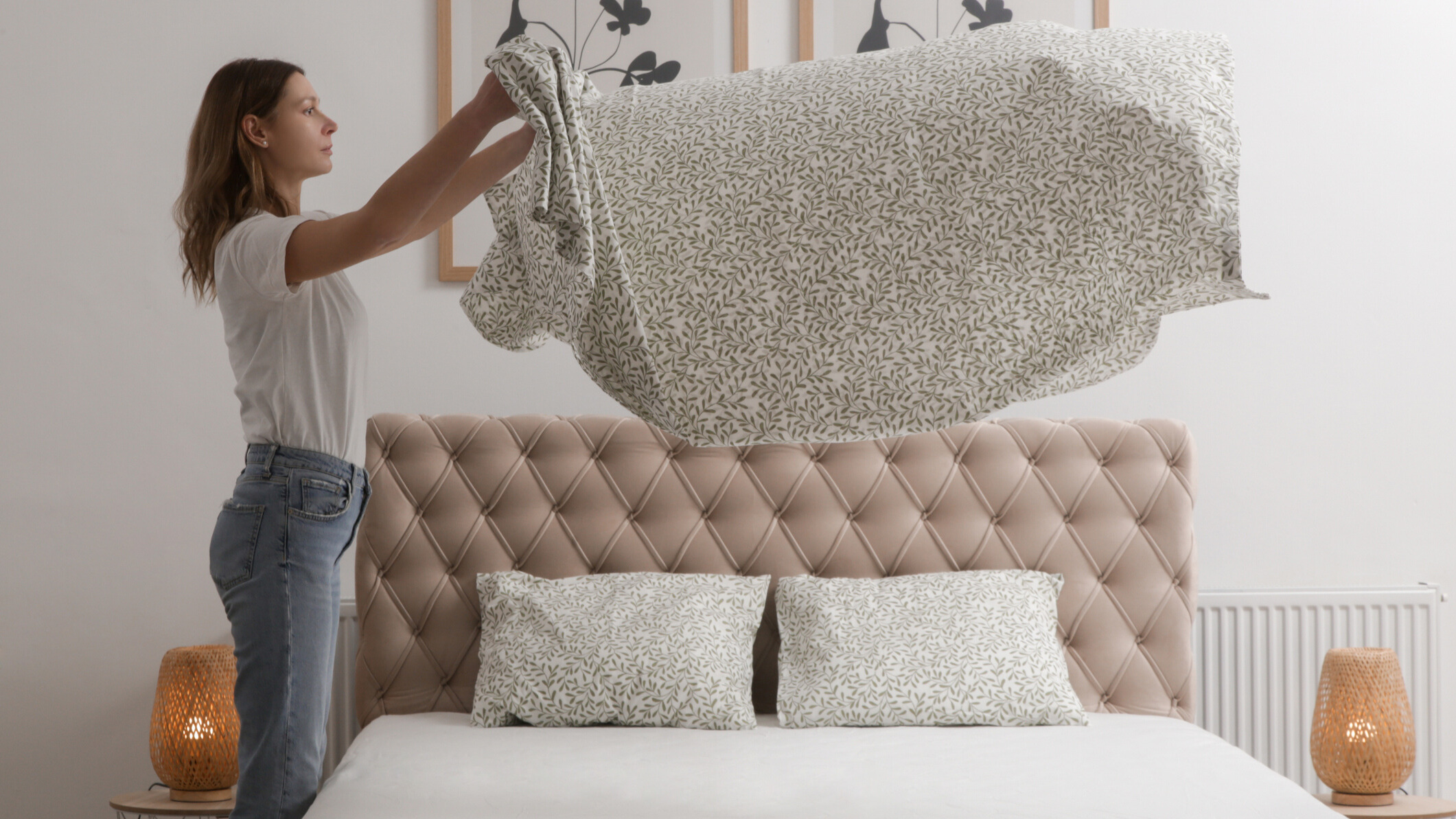
4. Don't let the mess pile up
Decluttering and redesigning your bedroom will not guarantee peaceful slumber forever. Consistency is key when it comes to maintaining the cleanliness in your bedroom. Regularly decluttering your sleeping space prevents accumulation of stress-inducing mess.
In addition to clearing out things, experts also recommend washing your bedding once a week to get rid of all the dead skin cells, sweat, body oils, pet dander, dirt and grime. Don’t forget about your mattress — vacuum and spot clean your bed monthly and rotate it every three months. This can not only extend its lifespan but also ensure a clean sleep.
5. Remove ambient noise and light
It's impossible to try and sleep in a noisy and brightly lit room. Getting rid of such external distractions is another sleep hygiene golden rule. Dimming the lights in the evening and using blackout curtains will help the brain winddown in time for bed.
You can either soundproof your bedroom or use noise-muffling ear plugs to create the ideal sleeping environment. Make sure to also adjust your room temperature to the optimal range (between 15 -19°C (60 -67° F)) which will let you fall asleep faster and sleep through the night.
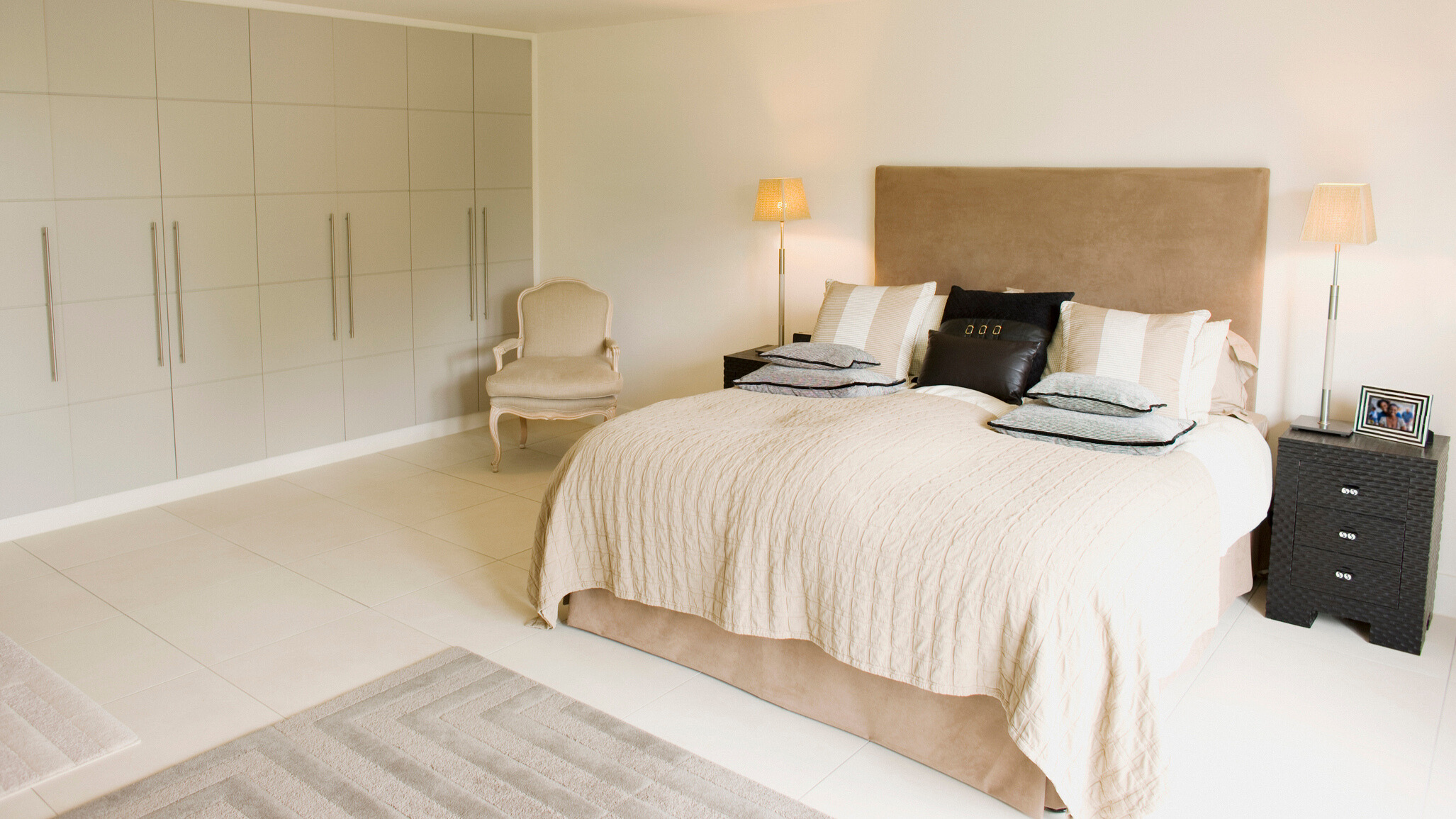
How can our environment impact our sleep?
"For those who are particularly sensitive to their surroundings, physical clutter can make it difficult to sleep. Seeing it every day—especially right before bed and first thing in the morning—creates a constant, energy-draining frustration," says Magrina.
If you're looking at redesigning your bedroom to reflect the sleep sanctuary in your dreams, it's important to take note of a few things. "We generally paint bedrooms in a soft color or bring in whimsical wallpapers paired with tonal rugs for warmth and texture. Choosing furniture with light woods and curvy shapes also helps," adds Magrina.
Cool tones such as soft blues, muted greens, and light grays create a calming environment while earthy hues like warm beige and taupe can create a cozy feeling. When it comes to layout, adjust the bed in the command position – having a clear view of the door. This setup fosters a sense of secure control, making it much easier to relax. You can also try experimenting with different arrangements to find a setup that feels comfortable.
Lastly adding a couple of plants and maybe an oil diffuser will be both aesthetic and calming. However, this doesn't mean crowding your bedroom. A minimalistic approach, including quality bedding and relaxing items, will soothe your stress levels and signal your body and mind that it's time to rest.

Becky is a Sleep Staff Writer at Tom’s Guide covering all things sleep-related including product reviews, research studies, news and explainers. She works on specialist bedding content and is responsible for buyer’s guides like the best pillows for all sleepers and best mattress protectors focusing on popular brands such as Tempur-Pedic, Avocado, Coop Home Goods and more. Becky is a PPA accredited journalist who is keen to explore the intricacies of sleep, its effects on skincare, mental wellbeing and work performance. While not thinking of sleep, she can be seen reading in cosy bookshops or learning about global food culture.
You must confirm your public display name before commenting
Please logout and then login again, you will then be prompted to enter your display name.
